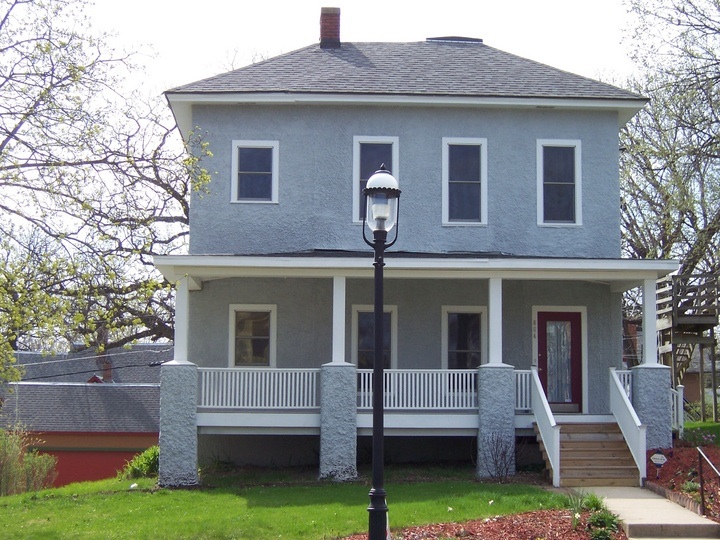| Revision as of 23:05, 18 September 2003 view sourceGRAHAMUK (talk | contribs)7,949 edits Deleted some irrelevant garbabg← Previous edit | Revision as of 09:25, 23 September 2003 view source Traroth (talk | contribs)Extended confirmed users508 edits nah:Next edit → | ||
| Line 1: | Line 1: | ||
| ] | ] | ||
| ] | |||
| <div style="float:left;margin:0 1em 1em 0;text-align:center;">]<br> | <div style="float:left;margin:0 1em 1em 0;text-align:center;">]<br> | ||
Revision as of 09:25, 23 September 2003

House painted blue
A house in its most general sense is a human erected structure, consisting of enclosing walls and having a roof. It provides shelter against precipitation, wind, heat, cold and intruding humans and animals. People may be away from home most of the day for work and recreation, but typically are home at least for sleeping.
A house generally has at least one entrance, usually in the form of a door or a portal, and may have any number of windows or not at all.
An alternative is living in an apartment in a larger building.
Houses have been used as living quarters for humans since prehistoric times, soon after they left caves, and construction materials, styles and methods of construction have varied wildly over time.
Early European houses were mere single roomed shacks without windows in which entire families and their cattle lived, keeping the house and each other relatively warm during winter.
Among the first examples (according to the estimated age of archaeological retrievals), notable are the palafittes.
See also:
Simpler forms of shelter include a tent, camper, a roof without walls, or a structure with roof and partial walls, such as often at a bus stop (see picture there).
In history, a House is a dynasty, a familiar descendance, often in the sense of Royal House.
In music, House refers to
- a production company (Casa Ricordi, Ricordi House)
- a subgenre of electronic music; see house music.
See also